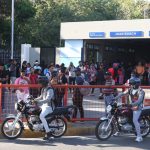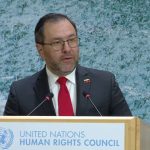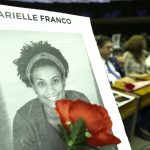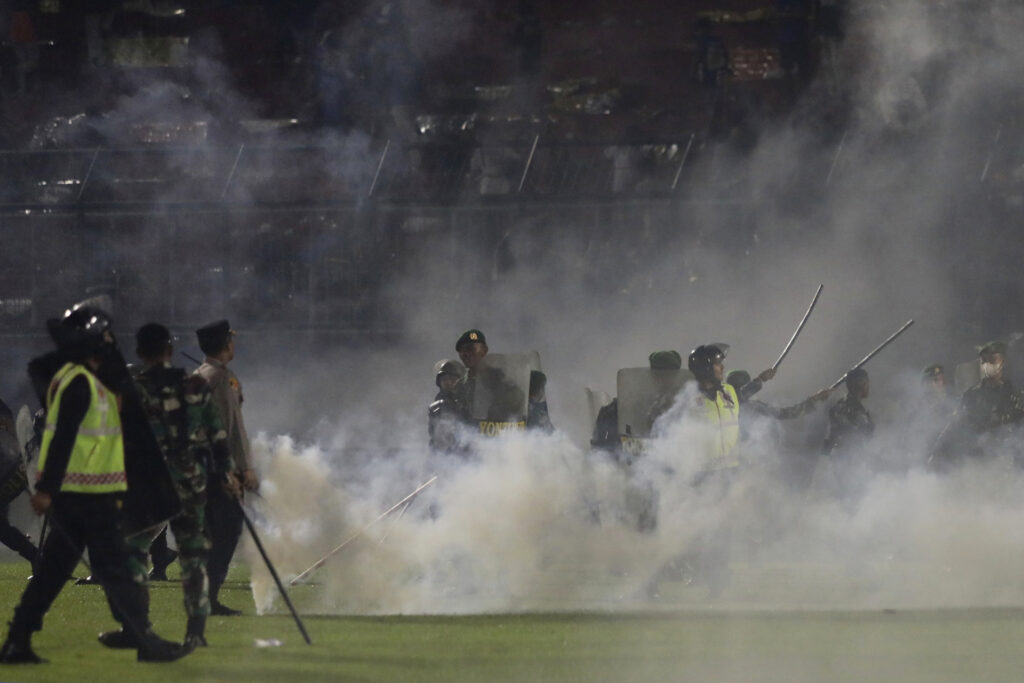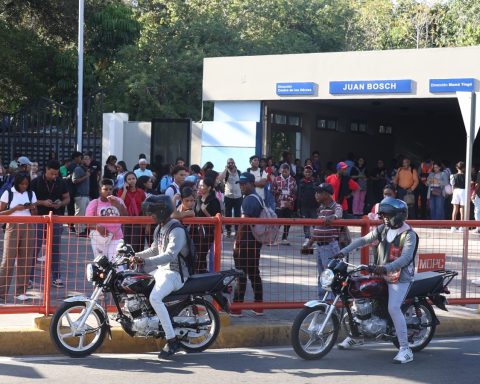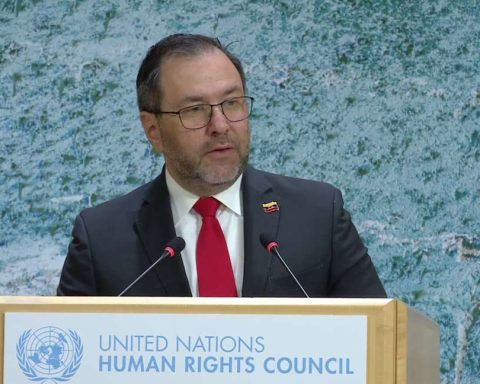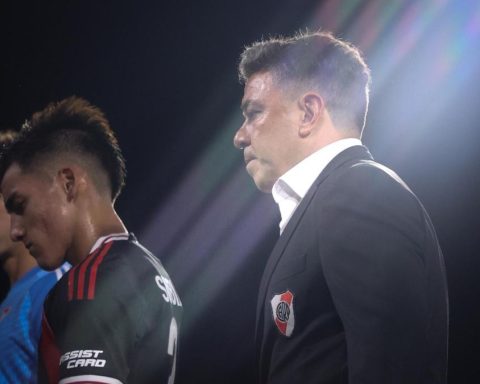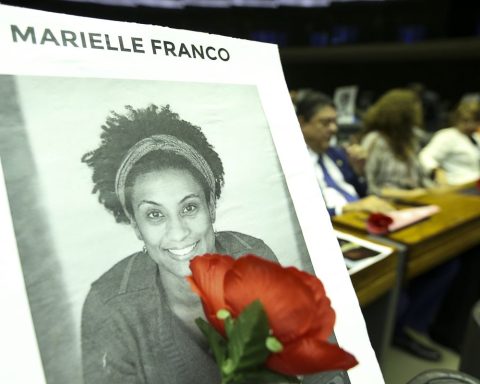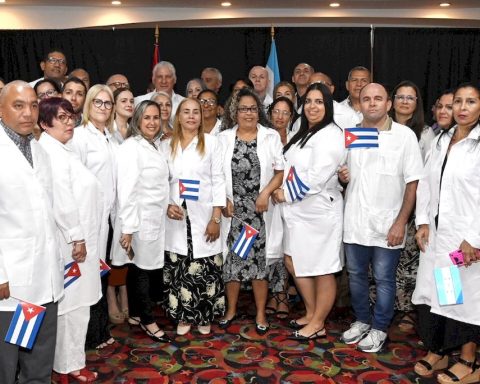Interview. In the midst of the misfortune of the deaths in recent weeks and the social upheavalone of the few institutions that has been doing a remarkable job is the Ombudsman. Eliana Revollarthe acting defender, argues that a “more professional response” is needed from the Government. He also maintains that advancing the general elections for this year should be considered.
—How do you assess the government’s response to the mobilizations?
With great concern for the results that have been obtained. Today (Friday) there are already 49 victims in Peru. In December we had pointed it out in the defense. A special commission was created to care for victims and we said that this should not happen again.
And it has been repeated.
However, Juliaca, Cusco, realize that, once again, it has happened. We regret the deaths, we condemn them, we demand an investigation, but we need a more professional response from the Government.
What do you mean by a more professional response?
With a lower cost in lives, lower social cost, fewer injuries. We are bordering on 800 people injured, including civilians, soldiers and police. A professional response, then, means differentiating between those who carry out a peaceful protest and those who carry out acts of violence.. A professional response implies conducting investigations with the rigor of due process guarantees. Many times, a death exacerbates the spirits of those who, even, do not protest.
—Faced with the dead, the people who were on the sidelines feel compelled to protest.
Exactly. And I think that those very deep fibers open up in Peruvians, what Basadre said: the official Peru versus the deep Peru. When one speaks of Lima, of the protection of Lima, one alludes to what, historically, has been in the feelings of people from other regions. If there are indications that behind the protests there are illegal economies, drug trafficking, the terrorism…
The confrontation between the National Police and citizens of all regions has left approximately 800 injured. Photo: Rodrigo Talavera/ The Republic
“They should be isolated.
There should be a base and be isolated. Much latitude has been given to illegal economies in the Peru. We have a record of about 20 human rights and environmental defenders who have lost their lives. This shows that we need an Executive, a government that responds differently. The way in which a policeman was cremated shows that we can reach barbarism, in which deaths are avenged…
I think we’re already in the middle of one.
That’s how it is. The Condition You have to give us assurances that you can respond in a civil and professional manner. This is not a fight of opposites that will be resolved with shots. If they tell us that the regulation has been complied with, with the principles of legality and necessity, there must also be humanity. Two people have died helping others.
—Above all, the professional use of force must be demanded from the State.
And we said that from the beginning. On December 14, a state of emergency was declared and we warn that, although there are rights suspended, they are not all. Furthermore, we point out that the defense does the same job. But we also warned that it was neither the police forces nor the military that were going to solve this. We predicted that the situation was going to get complicated. President Boluarte should resume her leadership. This is a moment in which you have to think about Peru, but, basically, you need the Executive and the Legislative to sit down. The mere resignation of Mrs. Boluarte is not going to solve the problem. The line of succession will always be in question. An answer must be given to the country, thinking of unity.
“Should the state of emergency be lifted?”
There must be a territorial assessment of the Executive, which must assume the consequences of its decisions. The Executive has to assess where the emergency should continue.
—After the massacre in Puno, the president, Dina Boluarte, has given no explanations. What do you think of it?
The last moment I saw her in person was within the framework of the National Agreement, when he got up. They announced that there was one deceased, but then the governor of Puno, who participates remotely from there, reported that there were actually nine. So she withdrew. And since then, we have not seen her publicly.
It’s a bad sign, isn’t it?
President Boluarte should resume leadership. This is a moment in which you have to think about Peru, but, basically, you need the Executive and the Legislative to sit down. The mere resignation of Mrs. Boluarte is not going to solve the problem. The line of succession will always be in question. An answer must be given to the country, thinking of unity.
-Has the Executive stopped doing politics?
The last political gesture that we saw from the president was the project of early elections.
—And should the elections be brought forward to 2023?
That assessment should be made. It is not a normal situation. Looking at the country, there are things that must be prioritized, there must be a sense of reality and urgency. How far will we go? Executive Y Legislative they have to react, this has to be resolved politically. We cannot allow Peruvians to continue facing each other in this way. The parents of the burned policeman are peasants from Cusco. Every police officer who goes out to repress has a life story behind it. How many are injured? Look, the Ombudsman, as she knows, follows the social conflict and they have never resolved a problem. In the end it has been with a dialogue table, with a negotiation. Likewise, the early elections leave a country…
For Eliana Revollar, the advancement of elections is an issue that should be subject to evaluation. Photo: composition LR/ Ombudsman/ Congress
-Broken?
Very broke. When the OAS arrived, we pointed out that the political confrontation between the Executive and the Legislative I’m talking about the period Pedro Castillo— was going to hit the streets. And the prediction came true. Boluarte took office legitimately, but leadership is needed from her.
—Decisions such as the impediment to the entry of Evo Morales. Was necessary?
Legally, it is an attribution of the Peruvian State, but did that resolve the issue? Therefore, leadership is needed, detachment. And that includes the Executive and Legislative. There may be violent elements, which we have always asked to be investigated. But at the same time there are people who are outraged because they are told that they have been paid (to protest) and they have not been paid.
—Or they tell them that they are becoming “Bolivianized”.
Exactly, or the separatist issue. All of this, beyond helping, ignites and further complicates the situation.
—What is the situation of the Ombudsman’s staff?
We are a small institution. We have 40 offices, we are just over 700 people and at this juncture we are tireless. For example, Juliaca it has three commissioners and there was no way to support them. They have been seeing the wounded, the autopsies, because if there is an institution that the population trusts, it is the Ombudsman. I told them to take turns, to rest, and they told me no, because they had succeeded in having family members, representatives of the communities, present at those autopsies. The 17 deaths (in Juliaca) are from firearm projectiles. There is a physical wear and, also, emotional.
—Congress wants to speed up the election of the new Ombudsman. It is his attribution, of course, but I ask him: do you consider that it is the best moment, given this situation?
They put this as part of the reform package. It is not only the defense. There is also the issue of requesting the reduction of the mandate of the holders of the JNE and of the ONPE. Times are controlled by Congress. The day they choose a starting defender, they will be received.
“Is it the best time?”
Actually, the time is at the culmination of the expired mandate. And that has never happened. We are in the third attempt and, today, the priorities are different.






